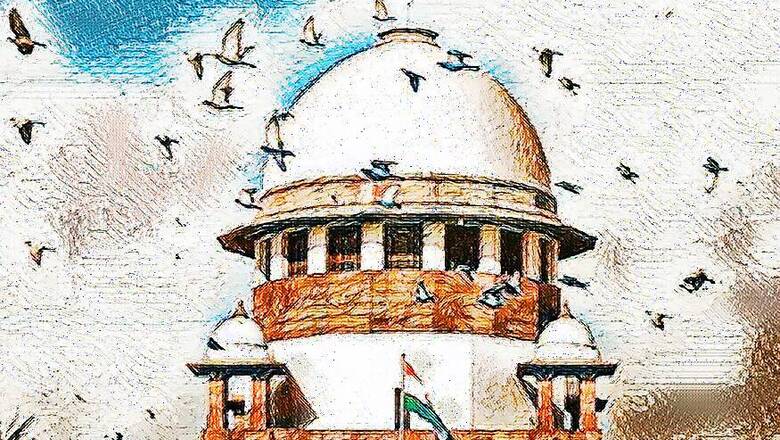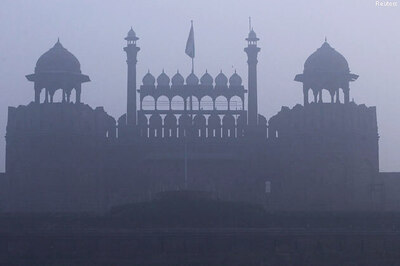
views
New Delhi: Supreme Court judge Deepak Gupta wants to go back to feature phones. And Solicitor General Tushar Mehta thinks that leaving smartphones could actually be a good idea. The reason? Both feel technology has made it dangerous to use smartphones.
Underscoring the perils of unregulated social media, the Supreme Court on Tuesday gave the Centre three weeks to place before it a policy to anchor the medium.
The bench, comprising Justices Gupta and Aniruddha Bose, emphasised how misuse of social media could prove dangerous for India and its law and order while noting that the government should come up with a policy. It also pointed out that the role and duties of intermediaries such as Facebook and WhatsApp should be determined appropriately so that accountability can be fixed.
“It is dangerous how some of these technologies work. I was thinking of giving up my smartphone and going back to feature phones," said Justice Gupta.
Mehta replied, "That would be wise... some of us already have."
Justice Gupta then went on to narrate an incident about how he, with the help of a professional, reached an internet post where AK-47 could be bought.
"People can buy even AK-47 on the internet… there have to be strict guidelines. Why do we have to worry about the internet only? We will worry about our country," he said.
Saying that it wants to strike a balance between individual privacy and state sovereignty, the bench asked the Solicitor General to place before it the draft guidelines so that the court can take a view on it.
The bench also talked about the need to access the information about the originator of a message, saying that in cases of hate crimes, defamation and other such cases, such information must come through. Neither the apex court nor the high court is competent to decide this scientific issue and it is for the government to come up with appropriate guideline to deal with these issues, the bench said.
The top court had earlier asked the Centre to clarify whether it was contemplating forming guidelines or a framework for linking social media accounts of users with their 12-digit biometric unique identifier Aadhaar. The court had said the matter, to help trace the originator of a content, needs to be decided at the earliest.
The court is hearing a bunch of petitions filed by Facebook and WhatsApp, contending that the Supreme Court should transfer to itself all the matters relating to social media guidelines pending before various high courts. One of the issues in this case is linking social media accounts with Aadhaar.
The Centre told the court that it had no objection to the transfer of the cases as considerable judicial time has been spent by high courts on such cases. Facebook and WhatsApp had said they have filed two appeals against Madras High Court orders.
The Tamil Nadu government in its reply to the transfer petition had claimed that Facebook Inc and other social media companies were not complying with Indian laws, resulting in "increased lawlessness" and difficulties in "detecting crimes".
It had sought modification of the August 20 order of the apex court directing the Madras High Court to continue hearing pleas for linking social media profiles with Aadhaar but restraining it from passing any orders.
The high court is at an advanced stage of hearing but due to the apex court's August 20 order, it deferred the hearing on those petitions, the state government had said.
Referring to different criminal cases, the state government had said local law enforcement authorities have attempted to seek information from these companies for investigation and detection of crimes on several occasions.
It had said that these companies ask authorities to send letters rogatory "despite operating on Indian soil" and have in all cases "failed to provide complete information".
On August 20, the apex court had sought response from the Centre, Google, WhatsApp, Twitter, YouTube and others on Facebook Inc's plea seeking transfer of cases, related to linking of social media accounts with Aadhaar, pending in high courts to the apex court.
Facebook Inc, while seeking the transfer of the cases to the top court, had contended that whether service providers can be asked to share data with probe agencies to help them in criminal investigation needs to be decided by the apex court as it will have a global effect.
The social media giant had argued that different high courts have taken contrary views and for the sake of uniformity it would be better if the cases are heard at the Supreme Court.
It had said that sharing of data with third party involves privacy concerns of users spread across the country and the case of this magnitude should be heard at the apex court.
The top court had asked social media companies, including Facebook and WhatsApp, to explain what would be the effect of recent amendments in Aadhaar Act by which the 12-digit unique identity number could be shared with the private party for larger public interest.
The state government has argued that both Facebook and WhatsApp have accepted the jurisdiction of the Madras High Court in dealing with the issue which would help agencies check fake news, pornographic content, terror messages as the originator could be traced.
It had said that an IIT professor is helping the Madras High Court to identify the originator of messages on these social media platforms.
(With inputs from PTI)




















Comments
0 comment